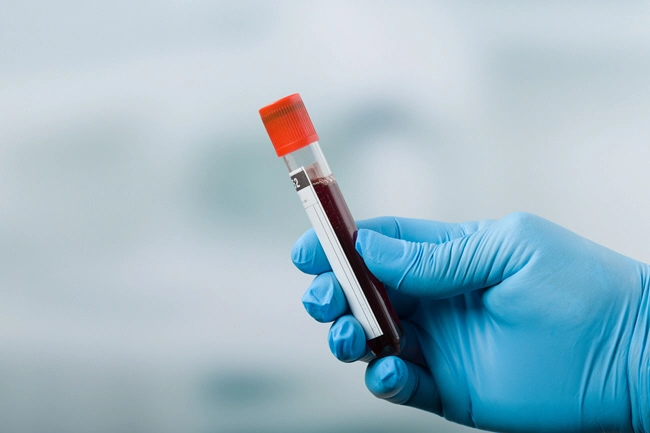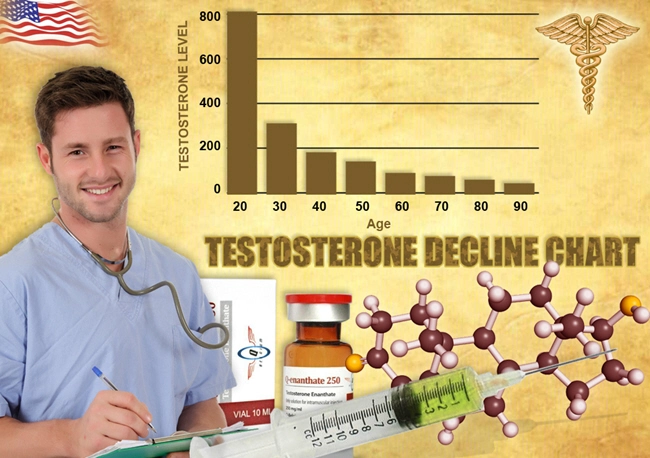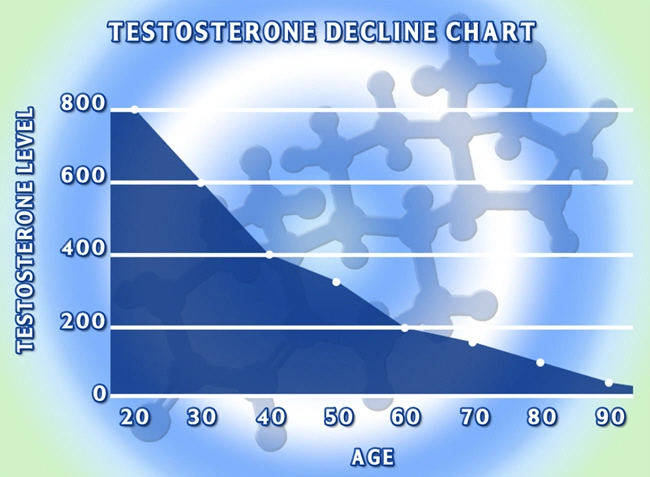
Introduction
Testosterone, the primary male sex hormone, plays a pivotal role in numerous physiological processes, including the maintenance of prostate health. Recent studies have begun to explore the complex relationship between testosterone levels and prostate health, particularly in the context of prostate cancer. This article delves into a longitudinal study conducted on American men, focusing on the impact of low testosterone levels on prostate health, with biopsy confirmations providing robust data.
Study Design and Methodology
The longitudinal study involved a cohort of 1,200 American men aged 40 to 70, followed over a decade. Participants underwent annual blood tests to measure testosterone levels, alongside regular prostate-specific antigen (PSA) screenings. Those exhibiting abnormal PSA levels were recommended for prostate biopsies to confirm the presence of prostate cancer or other abnormalities. The study aimed to correlate low testosterone levels with biopsy-confirmed prostate health outcomes.
Findings on Low Testosterone and Prostate Cancer
A significant finding from the study was the association between low testosterone levels and an increased risk of prostate cancer. Among the participants, those with consistently low testosterone levels were 1.5 times more likely to receive a biopsy-confirmed diagnosis of prostate cancer compared to those with normal testosterone levels. This suggests that low testosterone might not only be a marker but also a contributing factor to the development of prostate cancer.
Impact on Prostate Health Beyond Cancer
Beyond the increased risk of cancer, the study also explored the impact of low testosterone on other aspects of prostate health. Men with low testosterone were found to have a higher incidence of benign prostatic hyperplasia (BPH), a condition characterized by an enlarged prostate that can lead to urinary symptoms. The data indicated that low testosterone levels might exacerbate the growth of prostate tissue, contributing to BPH.
Mechanisms Linking Low Testosterone to Prostate Health
The study delved into potential mechanisms through which low testosterone might influence prostate health. One hypothesis is that low testosterone levels may lead to an increase in estrogen relative to testosterone, which could stimulate prostate cell proliferation. Additionally, low testosterone might impair the body's ability to repair DNA damage in prostate cells, thereby increasing the risk of malignant transformation.
Clinical Implications and Recommendations
The findings from this study have significant clinical implications for the management of prostate health in American men. Physicians are encouraged to consider testosterone levels as part of a comprehensive prostate health assessment, particularly in men with a family history of prostate cancer or those exhibiting early signs of BPH. Early detection and management of low testosterone could potentially mitigate the risk of prostate-related conditions.
Future Directions in Research
While this study provides valuable insights, further research is needed to fully understand the relationship between testosterone levels and prostate health. Future studies should explore the impact of testosterone replacement therapy on prostate health outcomes and investigate whether maintaining optimal testosterone levels can prevent or delay the onset of prostate cancer and BPH.
Conclusion
The longitudinal study on American men underscores the importance of monitoring testosterone levels as part of prostate health management. The association between low testosterone and increased risks of prostate cancer and BPH highlights the need for a holistic approach to men's health. As research continues to unravel the complexities of hormonal influences on prostate health, healthcare providers can better tailor interventions to improve outcomes for their patients.
Contact Us Today For A Free Consultation
Dear Patient,
Once you have completing the above contact form, for security purposes and confirmation, please confirm your information by calling us.
Please call now: 1-800-380-5339.
Welcoming You To Our Clinic, Professor Tom Henderson.

- Environmental Toxins Linked to Low Testosterone in American Men: Impacts and Mitigation Strategies [Last Updated On: February 28th, 2025] [Originally Added On: February 28th, 2025]
- Low Testosterone: Symptoms, Risks, and Comprehensive Management Strategies for American Males [Last Updated On: March 17th, 2025] [Originally Added On: March 17th, 2025]
- Alcohol's Impact on Testosterone: Risks and Strategies for American Men [Last Updated On: March 17th, 2025] [Originally Added On: March 17th, 2025]
- Low Testosterone's Impact on Muscle Mass and Strength in American Males [Last Updated On: March 17th, 2025] [Originally Added On: March 17th, 2025]
- Chronic Illnesses and Low Testosterone: Impacts and Management in American Males [Last Updated On: March 19th, 2025] [Originally Added On: March 19th, 2025]
- Low Testosterone's Impact on Cognitive Function in American Men: Risks and Interventions [Last Updated On: March 19th, 2025] [Originally Added On: March 19th, 2025]
- Low Testosterone in American Men: Impact on Energy and Treatment Options [Last Updated On: March 19th, 2025] [Originally Added On: March 19th, 2025]
- Vitamin D's Role in Boosting Testosterone Levels in American Men: A Comprehensive Overview [Last Updated On: March 20th, 2025] [Originally Added On: March 20th, 2025]
- Economic Burden of Low Testosterone on American Men's Health and Healthcare System [Last Updated On: March 20th, 2025] [Originally Added On: March 20th, 2025]
- Low Testosterone and Mood Disorders: Impacts and Management for American Men [Last Updated On: March 21st, 2025] [Originally Added On: March 21st, 2025]
- Weight Loss Boosts Testosterone: Strategies for American Males with Low T [Last Updated On: March 21st, 2025] [Originally Added On: March 21st, 2025]
- Low Testosterone and Diabetes: Interlinked Challenges and Management Strategies for Men's Health [Last Updated On: March 21st, 2025] [Originally Added On: March 21st, 2025]
- Low Testosterone Effects on Skin Health in American Men: Causes and Solutions [Last Updated On: March 22nd, 2025] [Originally Added On: March 22nd, 2025]
- Managing Low Testosterone in Aging American Men: Symptoms, Treatments, and Holistic Approaches [Last Updated On: March 22nd, 2025] [Originally Added On: March 22nd, 2025]
- Low Testosterone and Osteoporosis: Risks, Diagnosis, and Management in American Males [Last Updated On: March 22nd, 2025] [Originally Added On: March 22nd, 2025]
- Boosting Testosterone in American Men: The Power of Physical Activity and Lifestyle [Last Updated On: March 23rd, 2025] [Originally Added On: March 23rd, 2025]
- Low Testosterone and Prostate Health: Understanding Risks and Management Strategies [Last Updated On: March 23rd, 2025] [Originally Added On: March 23rd, 2025]
- Low Testosterone and Hair Loss: Mechanisms and Management in American Males [Last Updated On: March 23rd, 2025] [Originally Added On: March 23rd, 2025]
- Low Testosterone's Impact on Immune Function in American Males: Insights and Strategies [Last Updated On: March 23rd, 2025] [Originally Added On: March 23rd, 2025]
- Low Testosterone: Symptoms, Impact, and Treatment Options for American Men [Last Updated On: March 23rd, 2025] [Originally Added On: March 23rd, 2025]
- Medications Impacting Testosterone: What American Men Need to Know and Manage [Last Updated On: March 24th, 2025] [Originally Added On: March 24th, 2025]
- Sleep Apnea's Impact on Testosterone Levels in American Males: A Comprehensive Analysis [Last Updated On: March 24th, 2025] [Originally Added On: March 24th, 2025]
- Low Testosterone's Impact on American Males' Body Composition and Health [Last Updated On: March 24th, 2025] [Originally Added On: March 24th, 2025]
- Low Testosterone and Heart Disease Risk in American Men: Current Insights and Interventions [Last Updated On: March 24th, 2025] [Originally Added On: March 24th, 2025]
- Chronic Pain and Low Testosterone: A Critical Health Issue for American Males [Last Updated On: March 24th, 2025] [Originally Added On: March 24th, 2025]
- Herbal Supplements for Low Testosterone: Benefits and Considerations for American Men [Last Updated On: March 24th, 2025] [Originally Added On: March 24th, 2025]
- Environmental Estrogens and Declining Testosterone in American Males: A Public Health Concern [Last Updated On: March 25th, 2025] [Originally Added On: March 25th, 2025]
- Low Testosterone's Impact on Emotional Wellbeing in American Men: Insights and Guidance [Last Updated On: March 25th, 2025] [Originally Added On: March 25th, 2025]
- Dietary Impact on Testosterone Levels in American Men: Insights and Recommendations [Last Updated On: March 25th, 2025] [Originally Added On: March 25th, 2025]
- Managing Low Testosterone in Aging Men: Symptoms, Treatments, and Lifestyle Strategies [Last Updated On: March 25th, 2025] [Originally Added On: March 25th, 2025]
- Zinc's Role in Boosting Testosterone Levels in Aging American Men [Last Updated On: March 25th, 2025] [Originally Added On: March 25th, 2025]
- Chronic Inflammation's Impact on Testosterone Levels in American Males [Last Updated On: March 25th, 2025] [Originally Added On: March 25th, 2025]
- Testosterone's Role in Male Libido: Understanding, Diagnosing, and Treating Low Levels [Last Updated On: March 25th, 2025] [Originally Added On: March 25th, 2025]
- Low Testosterone and Depression in American Men: Links, Impacts, and Management Strategies [Last Updated On: March 25th, 2025] [Originally Added On: March 25th, 2025]
- Low Testosterone and Metabolic Syndrome: Risks and Strategies for American Men [Last Updated On: March 26th, 2025] [Originally Added On: March 26th, 2025]
- Genetic Factors in Low Testosterone Among American Males: Insights and Implications [Last Updated On: March 26th, 2025] [Originally Added On: March 26th, 2025]
- Smoking's Impact on Testosterone Levels in American Men: A Comprehensive Analysis [Last Updated On: March 26th, 2025] [Originally Added On: March 26th, 2025]
- Low Testosterone and Thyroid Disorders: Exploring Risks and Treatment in American Men [Last Updated On: March 26th, 2025] [Originally Added On: March 26th, 2025]
- Low Testosterone and Anemia: Impacts and Management in American Men [Last Updated On: March 26th, 2025] [Originally Added On: March 26th, 2025]
- Shift Work's Impact on American Men's Testosterone Levels and Health [Last Updated On: March 26th, 2025] [Originally Added On: March 26th, 2025]
- Liver Health and Testosterone: Vital Connections and Management Strategies for American Men [Last Updated On: March 26th, 2025] [Originally Added On: March 26th, 2025]
- Hormonal Imbalance and Low Testosterone: Causes, Symptoms, and Treatment Options for American Males [Last Updated On: March 27th, 2025] [Originally Added On: March 27th, 2025]
- Chronic Stress and Low Testosterone: Impacts and Strategies for American Men [Last Updated On: March 27th, 2025] [Originally Added On: March 27th, 2025]
- Respiratory Health's Impact on Testosterone Levels in American Males: Management Strategies [Last Updated On: March 28th, 2025] [Originally Added On: March 28th, 2025]
- Low Testosterone and Insulin Resistance: A Growing Concern for American Men's Health [Last Updated On: March 28th, 2025] [Originally Added On: March 28th, 2025]
- Low Testosterone Linked to Increased Kidney Disease Risk in American Men [Last Updated On: March 28th, 2025] [Originally Added On: March 28th, 2025]
- Low Testosterone Linked to Increased Autoimmune Disease Risk in American Men [Last Updated On: March 28th, 2025] [Originally Added On: March 28th, 2025]
- Nutritional Deficiencies Impacting Testosterone Levels in American Males: Zinc, Vitamin D, Magnesium [Last Updated On: March 29th, 2025] [Originally Added On: March 29th, 2025]
- Low Testosterone Linked to Neurological Disorders in American Men: Research and Implications [Last Updated On: March 30th, 2025] [Originally Added On: March 30th, 2025]
- Gut Microbiome's Impact on Testosterone Levels in American Males: A Comprehensive Review [Last Updated On: March 30th, 2025] [Originally Added On: March 30th, 2025]
- Dental Health's Impact on Testosterone Levels in American Males: Emerging Insights [Last Updated On: March 31st, 2025] [Originally Added On: March 31st, 2025]
- Low Testosterone Linked to Dermatological Issues in American Men: Research and Management [Last Updated On: March 31st, 2025] [Originally Added On: March 31st, 2025]
- Low Testosterone Linked to Increased Eye Disorder Risk in American Men [Last Updated On: March 31st, 2025] [Originally Added On: March 31st, 2025]
- Reproductive Health's Impact on Testosterone Levels in American Males: A Comprehensive Analysis [Last Updated On: April 1st, 2025] [Originally Added On: April 1st, 2025]
- Low Testosterone Linked to Musculoskeletal Disorders in American Men: Interventions and Insights [Last Updated On: April 2nd, 2025] [Originally Added On: April 2nd, 2025]
- ENT Health and Testosterone: Managing Conditions to Boost Hormonal Balance in Males [Last Updated On: April 4th, 2025] [Originally Added On: April 4th, 2025]
- Low Testosterone and Urological Health: Risks, Detection, and Management Strategies [Last Updated On: April 5th, 2025] [Originally Added On: April 5th, 2025]
- Low Testosterone Linked to Hematological Risks in American Men: Insights and Management [Last Updated On: April 5th, 2025] [Originally Added On: April 5th, 2025]
- Low Testosterone Linked to Higher Infection Risk in American Men: Research Insights [Last Updated On: April 6th, 2025] [Originally Added On: April 6th, 2025]
- Understanding and Managing Low Testosterone: A Holistic Endocrine Approach [Last Updated On: April 6th, 2025] [Originally Added On: April 6th, 2025]
- Immune System's Role in Testosterone Levels: Impacts and Interventions for American Males [Last Updated On: April 8th, 2025] [Originally Added On: April 8th, 2025]
- Low Testosterone Linked to Increased Psychiatric Risks in American Men: Mechanisms and Implications [Last Updated On: April 9th, 2025] [Originally Added On: April 9th, 2025]
- Low Testosterone and Surgical Risks in American Men: Implications and Recommendations [Last Updated On: April 10th, 2025] [Originally Added On: April 10th, 2025]
- Trauma's Impact on Testosterone Levels in American Males: Clinical Insights and Management [Last Updated On: April 10th, 2025] [Originally Added On: April 10th, 2025]
- Rheumatological Conditions and Low Testosterone: Impacts and Management Strategies [Last Updated On: April 11th, 2025] [Originally Added On: April 11th, 2025]
- Cancer's Impact on Testosterone Levels in American Males: Mechanisms and Management [Last Updated On: April 13th, 2025] [Originally Added On: April 13th, 2025]
- Testosterone Levels and Wound Healing in American Males: Impacts and Management Strategies [Last Updated On: April 14th, 2025] [Originally Added On: April 14th, 2025]
- Low Testosterone and Vascular Disorders: Risks, Mechanisms, and Management in American Men [Last Updated On: April 14th, 2025] [Originally Added On: April 14th, 2025]
- Anesthetics' Impact on Testosterone: Management Strategies for American Males [Last Updated On: April 14th, 2025] [Originally Added On: April 14th, 2025]
- Low Testosterone Linked to Increased Genetic Disorder Risk in American Men [Last Updated On: April 15th, 2025] [Originally Added On: April 15th, 2025]
- Early Life Health Factors Impact Testosterone Levels in American Males [Last Updated On: April 15th, 2025] [Originally Added On: April 15th, 2025]
- Low Testosterone in American Men Linked to Pediatric Disorders in Offspring [Last Updated On: April 16th, 2025] [Originally Added On: April 16th, 2025]
- Low Testosterone and Geriatric Risks in American Men: Detection and Management Strategies [Last Updated On: April 16th, 2025] [Originally Added On: April 16th, 2025]
- Prenatal Health Impacts on Testosterone Levels in American Males: Insights and Management [Last Updated On: April 16th, 2025] [Originally Added On: April 16th, 2025]
- Low Testosterone Linked to Increased Allergic Reactions in American Men: Emerging Insights [Last Updated On: April 17th, 2025] [Originally Added On: April 17th, 2025]
- Low Testosterone Linked to Congenital Disorders in American Men: Research Insights [Last Updated On: April 18th, 2025] [Originally Added On: April 18th, 2025]
- Neonatal Health's Impact on Testosterone Levels in American Males: A Comprehensive Analysis [Last Updated On: April 18th, 2025] [Originally Added On: April 18th, 2025]
- Occupational Health Impacts on Testosterone Levels in American Men: Stress, Work Demands, and Environment [Last Updated On: April 19th, 2025] [Originally Added On: April 19th, 2025]
- Managing Low Testosterone: Diagnosis, HRT, Lifestyle, and Psychological Support for American Men [Last Updated On: April 21st, 2025] [Originally Added On: April 21st, 2025]
- Low Testosterone in American Men: Symptoms, Impacts, and Treatment Options [Last Updated On: April 22nd, 2025] [Originally Added On: April 22nd, 2025]








